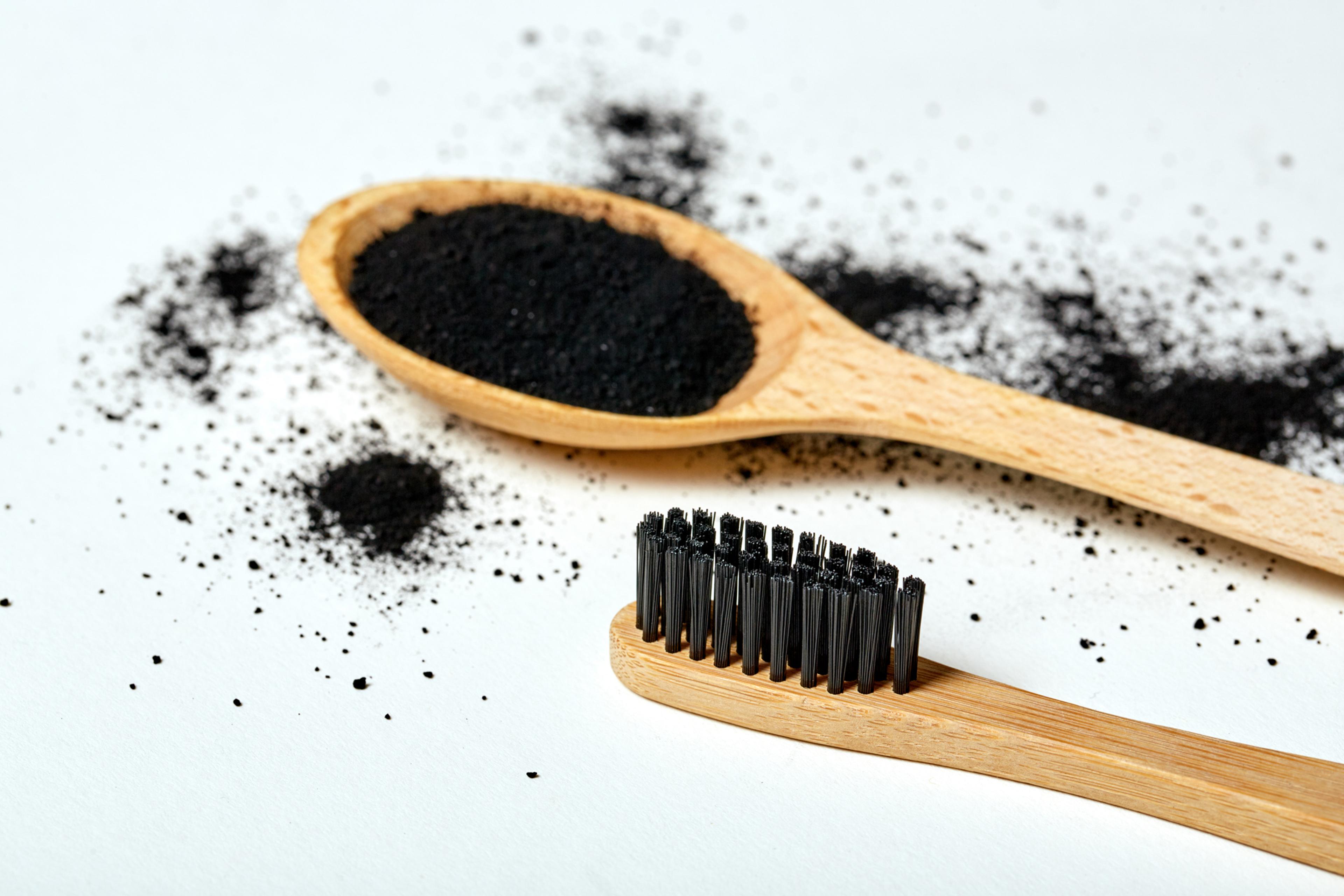Is Activated Charcoal Healthy?
A Healthier Michigan
| 3 min read

Activated charcoal has been showing up all over in recent years, from toothpaste to hamburger buns to supplements. The substance has a history of medical use as an antitoxin for ingested poisons, but more recently it’s become a social phenomenon for “detoxing.” Many common short-term uses for activated charcoal do not have much scientific backing and are not approved by the U.S. Food and Drug Administration (FDA). Let’s understand what it is and why it’s become so popular.
What is activated charcoal?
Activated charcoal is a fine, porous, black powder. Charcoal is created when natural substances such as wood, peat or coconut shells are burned. For charcoal to be “activated charcoal,” the charcoal needs to be created by burning it without oxygen, which causes the charcoal to be more absorbent and better able to trap poisons and toxins.
Why do people take activated charcoal?
Food-grade activated charcoal is safe to consume, but it is not FDA approved for medical purposes, unlike the activated charcoal used in emergency rooms and by paramedics. Here is a list of branded pharmaceutical activated charcoal products.
There are many claims about over the counter (OTC) activated charcoal products, but many are not supported by research or scientific study. Activated charcoal is not recommended for daily use. It is often used for a variety of reasons, each related to its ability to absorb substances, such as an upset stomach, intestinal gas and discomfort, teeth whitening, treatment for hangovers and detoxification.
There is no scientific basis for activated charcoal as a detoxification agent or for these other listed uses. In most circumstances, the adrenal and endocrine systems function as the body’s toxin filters, and supplements like activated charcoal are not needed. Some studies show that activated charcoal may help with reducing gas. In some people, however, it causes vomiting or constipation.
In medical settings, physicians most often use charcoal when the exact poisonous substance has not been determined. Once the poison is identified, there is usually a more appropriate intervention. Do not try to treat poisonings or overdoses with activated charcoal at home; seek immediate emergency medical attention. Activated charcoal does not bind to iron, lithium or hydrocarbons like gasoline or paint thinner.
Additionally, activated charcoal can prevent the body from absorbing nutrients as it can bind to them before they can be absorbed.
It also has no scientific basis to be used as a teeth whitening agent, although charcoal can help remove stubborn residue on teeth. Activated charcoal toothpaste, however, may wear down tooth enamel.
It may be helpful for patients with renal disease, but there is not enough study on activated charcoal’s effects on regular kidney function to use it as an antitoxin for that purpose.
Is activated charcoal healthy and safe to use?
Using activated charcoal for a short time may be safe based on current medical advice and research. There is less research on long-term use, but it has been known to cause constipation and discolored stools. However, activated charcoal taken orally can also reduce the effectiveness of many medications, including birth control. Do not take activated charcoal if you:
- have taken laxatives
- are constipated or have slow bowels
- have a bowel blockage
- have an ulcer or intestinal perforation
- have a heightened risk of intestinal bleeding from a medication or condition
You should talk to your doctor before adding activated charcoal to your diet or routine.





